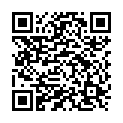|
|
|
| Module code: MEB_24_A_2.07.ELT |
|
|
3V+1P (4 hours per week) |
|
5 |
| Semester: 2 |
| Mandatory course: yes |
Language of instruction:
English |
Required academic prerequisites (ASPO):
Lab participation and lab report |
Assessment:
written exam
[updated 13.11.2023]
|
MEB_24_A_2.07.ELT (P241-0467, P241-0468) Mechanical Engineering, Bachelor, SO 01.10.2024
, semester 2, mandatory course
|
60 class hours (= 45 clock hours) over a 15-week period.
The total student study time is 150 hours (equivalent to 5 ECTS credits).
There are therefore 105 hours available for class preparation and follow-up work and exam preparation.
|
Recommended prerequisites (modules):
None.
|
Recommended as prerequisite for:
|
Module coordinator:
Prof. Dr. Wenmin Qu |
Lecturer:
Prof. Dr. Wenmin Qu (lecture)
Dr.-Ing. Arthur Grün (practical training)
[updated 28.02.2025]
|
Learning outcomes:
After successfully completing this module, students will be familiar with the basic passive and active components of electrical engineering and understand their operating behavior and interaction. They will be familiar with the basics of electrical engineering and its connection to magnetism. They will observe the basic rules for handling electricity. Students will be able to perform basic electrical design tasks, understand electrical circuits and calculate simple networks. They will understand the differences between direct and alternating current systems. Furthermore, students will be familiar with the basic structure and function of electrical machines. Based on the example of synchronous and asynchronous machines in motor and generator operation, they will be able to explain the function and power electronics required and be able to select the appropriate machines.
Students will improve their subject-related technical English skills. Students will know the subject-specific English terms.
[updated 28.02.2025]
|
Module content:
Electrical quantities and basic laws
Kirchhoff´s rules
Measuring current, voltage, power
DC circuits, calculating networks
Electric field, capacitor, capacity
Magnetic field
Magnetic field strength, magnetic flux density, magnetic flux
Ampère´s circuital law
Forces in the magnetic field
Faraday´s law of induction, Lenzs law Self-induction, inductance
Generating stress by rotation and transformation
Eddy currents and applications
Alternating current circuits
Circuits with resistors, capacitors, inductors, resonant circuits
Active power, reactive power, apparent power, work
Three-phase systems
Semiconductor components Diodes, transistors and operational amplifiers
Electrical machines in motor and generator operation
Design and basic function of synchronous and asynchronous motors
Basic function of a frequency converter
[updated 15.01.2024]
|
Teaching methods/Media:
Lecture, descriptions of lab experiments; Lab experiments with assistance where required, Independently written lab reports in accordance with specifications on content and form
[updated 15.01.2024]
|
Recommended or required reading:
Hermann Linse, Rolf Fischer: Elektrotechnik für Maschinenbauer Rudolf Busch: Elektrotechnik für Maschinenbauer und Verfahrenstechniker Eckbert Hering, Jürgen Gutekunst, Rolf Martin: Elektrotechnik für Maschinenbauer Eckbert Hering, Jürgen Gutekunst, Rolf Martin: Elektrotechnik für Ingenieure G. Fliegel: : Elektrotechnik für Maschinenbauer
[updated 15.01.2024]
|

